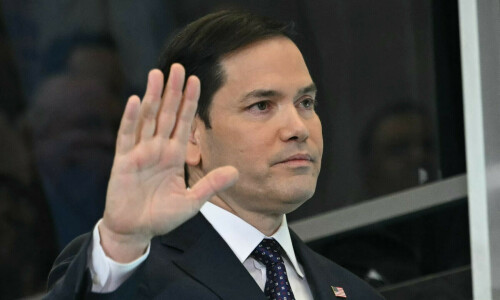Companies that rival countries
It’s getting harder to distinguish brands from nation-states: Walmart employs roughly the population of Botswana, Microsoft’s market cap is greater than Brazil’s GDP and FedEx has five times more planes than Air India. Even space exploration, once the strategic preserve, technical province and patriotic pride of nation-states, is now a brand’s domain. Today’s space race has been joined by Jeff Bezos’s Blue Origin, Elon Musk’s Space X and Richard Branson’s Virgin Orbit. As the Earth floods and burns, the world’s richest brand leaders set a course for Planet B as a place to dump heavy industry, lure tourists and escape the thin air of tax and regulation. Fast-forward another 50 years, and brands may well be planting extraterrestrial territorial logos alongside the flags of nation-states. So, if they look like nation-states and act like nation-states, should big brands like Amazon and Alphabet be invited to join the United Nations? Given the scope of their ambitions and our dependence on them, behemoth brands should be treated, and held to account, for what they really are: commercial superpowers.
(Adapted from “Give Amazon and Facebook a Seat at the United Nations,” by Ben Schott, published on Oct 3, 2021 by Bloomberg Opinion)
Permit yourself to dial back
Your ability to give yourself permission to dial it back (even just a little) has the potential to drastically improve your physical and mental health, not to mention your productivity at work. Here are some tips: 1) If you notice yourself working on the weekend or responding to an email after hours, pause. Take a couple of minutes to write down where this behaviour is coming from. Are you afraid of falling behind? Losing your job? Are these fears rooted in reality, or is it time to change the narrative? 2) Make a plan and share it with someone you respect and admire for their ability to do great work while also giving themselves permission to relax. Beyond simply holding you accountable, they might also offer helpful strategies. 3) Do an analysis of your workload — which tasks generate the most value and bring you the most joy? Work with your manager to reorganise your schedule to spend more time on those responsibilities. 4) When you zoom out and pretend you are looking back at your life, it is easier to see what’s valuable to you in the long run and what is just noise.
(Adapted from “Burning Out? Give Yourself Permission to Dial It Back,” by Kate Northrup, published by the Harvard Business Review)
Wealthy kid’s loophole
If you have a modest income but access to lots and lots of cash, New York City has an apartment ownership program that’s right up your alley. The children of America’s wealthy are quietly sewing up deals like this in some of New York’s most desirable neighbourhoods, in buildings known as Housing Development Fund Corporation cooperatives, or HDFCs. These buildings were at one time in financial (and often physical) distress, and many are still shunned by conventional mortgage underwriters — hence the need for buyers to pay cash. Many are no longer cheap because the agreements that once limited resale prices have expired. But even at prices that can crest well above $1 million, they’re discounted to the market, because of the income limit on buyers and the lack of available financing in some cases. And the taxes can be remarkably low — on South 2nd Street, the owners enjoy annual property tax discounts of roughly 70pc.
(Adapted from “New York’s Real Estate Tax Breaks Are Now A Rich-Kid Loophole,” by Caleb Melby, published on Oct 8, 2021, by Bloomberg Businessweek)
The richest Indian
Mukesh Ambani, Asia’s richest person, joined Jeff Bezos and Elon Musk in the world’s most exclusive wealth club with a fortune of at least $100bn. The chairman of India’s Reliance Industries Ltd entered the rarefied group of 11 men as his conglomerate’s stock climbed to a record last week. He’s now worth $100.6bn, according to the Bloomberg Billionaires Index, after his wealth increased by $23.8 billion this year. Since inheriting the oil-refining and petrochemicals businesses of his late father’s empire in 2005, Ambani, 64, has been seeking to transform the energy giant into a retail, technology and e-commerce titan. His telecommunications unit, which started services in 2016, is now the dominant carrier in the Indian market. His retail and technology ventures raised about $27bn billion last year, selling stakes to investors ranging from Facebook Inc. and Google to KKR & Co and Silver Lake.
(Adapted from “Ambani Joins Bezos, Musk in World’s Exclusive $100 Billion Club,” by Alexander Sazonov, published on Oct 9, 2021, by Bloomberg Businessweek)
Published in Dawn, The Business and Finance Weekly, October 18th, 2021















































